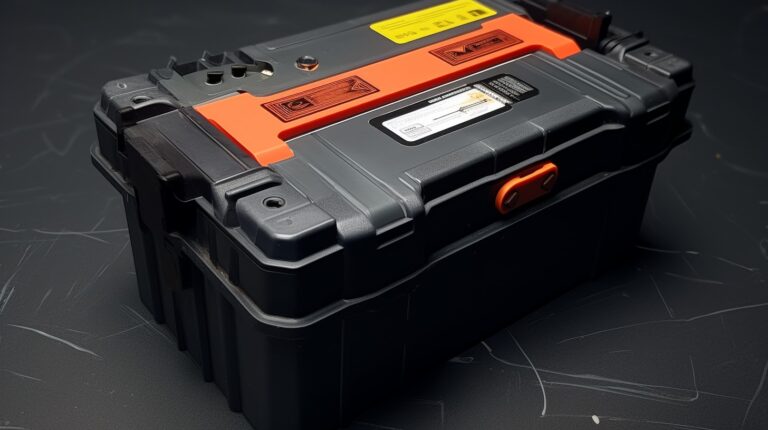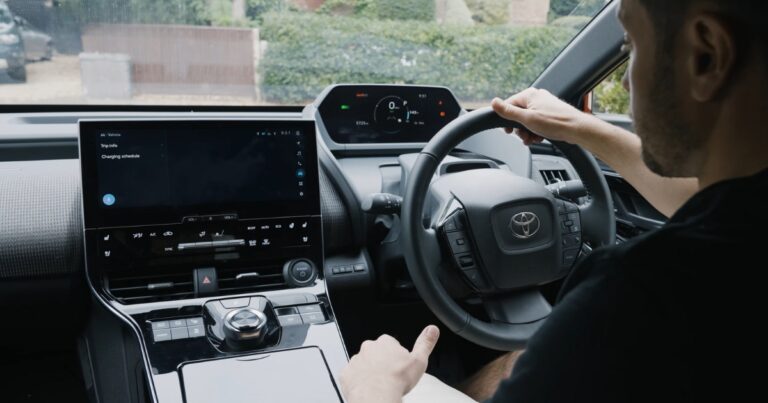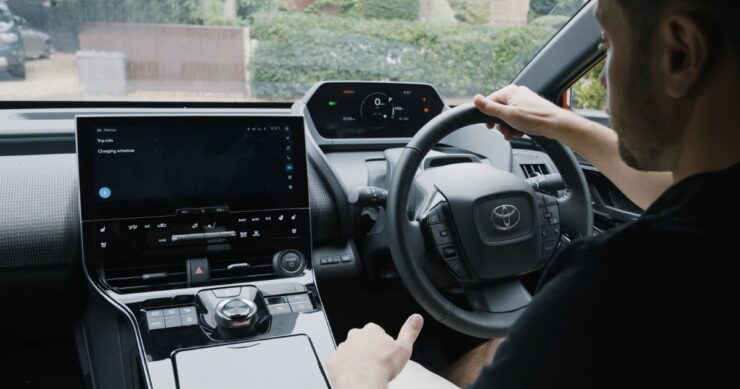Hey there, fellow hybrid enthusiasts! If you’re reading this, chances are you’ve experienced or heard about the infamous 12-volt battery issues that plague some Prius owners.
I’ve been there, and I totally get the frustration. After all, we bought our Prius for its reliability and eco-friendliness, right? But fear not, because today, I’m guiding you through the world of Prius 12-volt battery problems.
Together, we’ll explore the common issues, their causes, and most importantly, how to keep our beloved hybrids running smoothly. So, buckle up, and let’s get started!
Prius 12-volt Battery Details
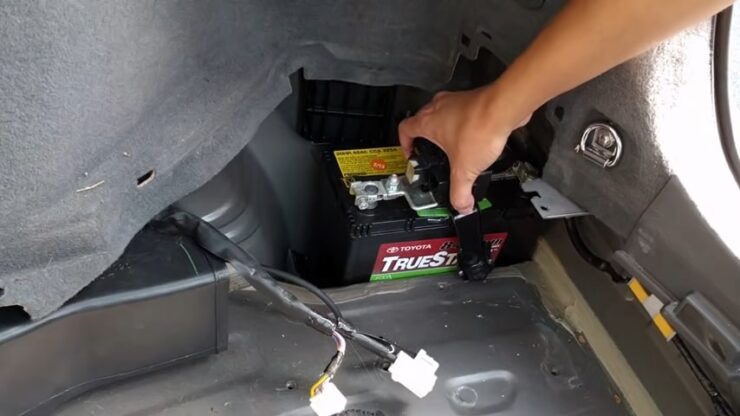
A marvel of hybrid technology equipped with not one, but two batteries. First, there’s the 12-volt battery, neatly tucked away in the trunk, and then there’s the more powerful high-voltage battery pack, boasting a whopping 200V. Now, if you’re thinking the 12-volt battery is what gets your engine roaring to life, think again. In the Prius, things work a tad differently.
The 12-volt battery’s primary role is to channel electric power to the high-voltage battery pack. This happens during the boot-up of the car’s intricate electronics, which oversee the engine and the hybrid systems. Once powered, the high-voltage battery takes the lead, bringing the engine to life.
But the 12-volt battery isn’t just a one-trick pony. It’s also responsible for juicing up devices and other car electronics, whether the vehicle is switched off, idling, or in ready mode. However, the main battery remains the star of the show, being the primary reservoir of electrical energy before any other component takes the stage.
When we talk about the specifics, the Prius’s 12v battery is a robust piece of tech. It’s a sulfuric lead-acid, 46Ah, AGM-type battery. Dimension-wise, it stretches to 9 inches in length, with a width of 4.3 inches by 4 inches. Standing tall at 7.3 inches, this battery weighs in at approximately 46 pounds.
Signs of a Battery Condition
Your Prius is smart, and it tries to communicate with you, especially when its battery is feeling under the weather. It’s up to us, the drivers, to pick up on these subtle hints before they escalate into bigger issues.
- Start-Up Behavior: A healthy battery is like a morning person – it gets going without any fuss. If your car hesitates, drags its feet, or outright refuses to start, it’s a glaring sign that the battery is on its last legs. This sluggishness stems from the battery’s diminished power, making it unable to provide the necessary energy to kickstart the engine. If you’re facing this, it might be time for a battery replacement.
- Lighting Tells a Tale: Both the interior and exterior lights of your Prius can be indicators of battery health. If you’ve noticed your lights dimming momentarily during ignition, only to regain their brightness once the engine is running, it’s a sign your battery is struggling. The dimming happens because the battery, in its weakened state, diverts power to start the engine, leaving insufficient energy to keep the lights fully lit.
- Radio Preset Memory Loss: Ever had that moment where you start your Prius and find your favorite radio stations have vanished? This isn’t a random glitch but a symptom of a failing battery. The system, in its bid to conserve energy, might temporarily cut off power to non-essential functions like radio presets.
- Booting Woes: A clear sign of a deteriorating battery is when the gear selections start flashing on the Odometer screen, indicating a failure to boot into ready mode.
- Mysterious Error Messages: The Prius, being the sophisticated machine it is, relies heavily on sensors and computers. If these sensors detect irregular current flows, they might trigger error messages on the display screen. Frequent, unexplained error alerts, even when there’s no apparent issue with the indicated system, can point to a failing 12v battery.
Battery Problems and Solutions
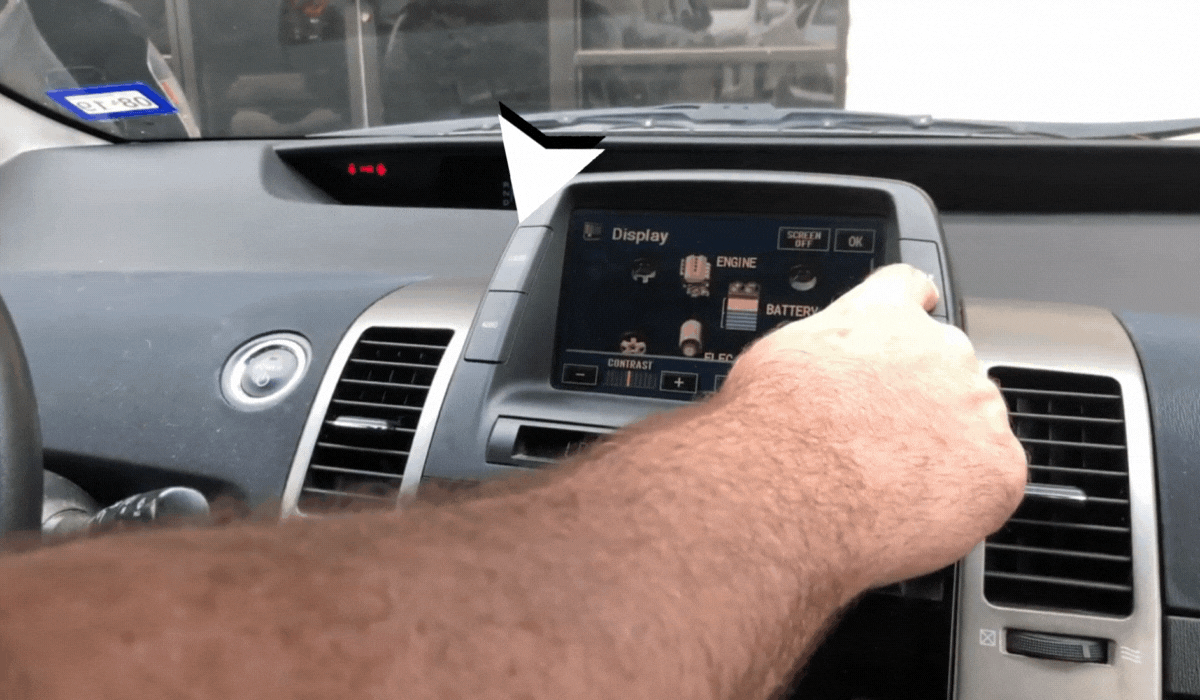
Every car battery has its quirks, and the Prius 12-volt battery is no exception. While it’s a reliable component, it’s not without its occasional hiccups. But fear not, for every problem, there’s a solution. Let’s delve into some common issues Prius owners face and how to tackle them head-on:
Sudden power decline
A brand-new Prius battery is like a powerhouse, efficiently fueling all vehicle functions and ensuring a smooth engine start. However, as you clock in more miles, you might notice a gradual decline in its performance.
Suddenly, certain car components might act up, leading you to question the car’s charging system. But more often than not, it’s the battery failing to charge optimally, causing a power drain.
Solution:
- Schedule an appointment with a Prius Auto service expert for a precise diagnosis.
- If your battery is still under warranty, get it repaired or replaced at no additional cost.
Dead on Prolonged vehicle inactivity
Ever left your Prius untouched for a while, only to find it unresponsive when you finally decide to take it for a spin? While most car batteries spring back to life with a quick charge, the Prius battery can sometimes go completely dormant.
Solution:
- Even if you’re not using your Prius, start and warm up the engine daily to keep the battery active.
Hard to reach
Tucked away in the trunk, the 12-volt battery can be a challenge to access. If you’re not well-acquainted with the Prius’s intricate design, attempting a DIY battery replacement might do more harm than good, potentially jeopardizing the car’s sensitive computer system.
Solution:
- When in doubt, call in the pros. Always consult a professional for battery replacements or any tasks that require accessing the battery.
Short life span
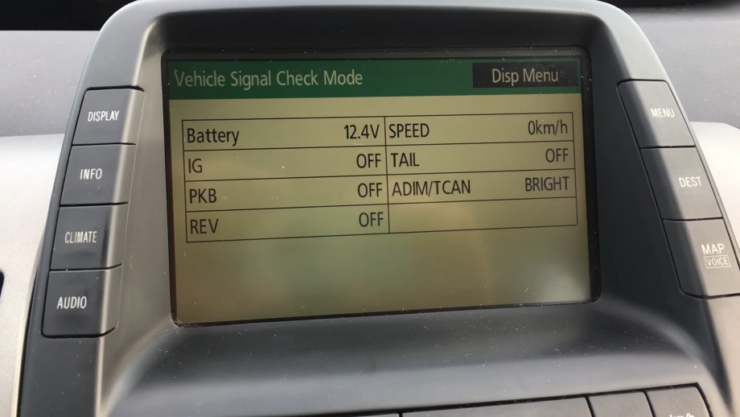
Ideally, a Prius battery should serve you faithfully for 8-10 years. However, many owners find their batteries faltering way before reaching this milestone. While it’s natural to question if you’ve inadvertently hastened its decline, the issue often lies with the battery itself.
Solution:
- Discuss the issue with a battery expert and heed their advice.
- Review your purchase documents to check if your warranty still covers the battery.
- If all else fails, invest in a new battery.
Difficult to maintain
Maintaining the 12-volt Prius battery can be a tad tricky, given its location. Over time, terminal corrosion can set in, leading to partial contact issues. This can disrupt current flow, potentially affecting the car’s hybrid systems.
Solution:
- Consult your Prius manual for maintenance guidelines and follow them diligently.
- For a hassle-free experience, entrust your battery maintenance to a certified auto service.
Things that you need to check
Wondering about the state of your Prius 12-volt battery? With the right tools, you can assess its condition with ease. Here’s what you’ll need:
- Voltmeter: This device measures the electrical potential difference between two points in an electric circuit.
- Cords: Essential for connecting your voltmeter to the battery.
- Terminal Clips (Positive and Negative): These ensure a secure connection to the battery terminals, allowing for accurate readings.
Step by step Battery Checking Guide
Understanding the health of your Prius battery is crucial for optimal performance. Here are three comprehensive methods to gauge its condition:
Method one
This method involves testing the battery directly, either while it’s nestled in the car’s trunk or after removing it. It’s a straightforward approach, and here’s how you can execute it:
Steps:
- Prep Your Voltmeter: Voltmeters come in various types, from analog to advanced digital ones. Some digital versions even provide intricate details like internal resistance. Begin by connecting the positive (red) and negative (black) cords to the voltmeter.
- Spot the Battery Terminals: Examine the battery closely to identify the positive and negative terminals.
- Clip and Connect: Attach the voltmeter clips to the battery terminals—positive to positive and negative to negative.
- Read the Results: Activate the voltmeter and observe the display for battery details.
Method two
This method doesn’t involve direct contact with the battery but still utilizes the voltmeter for accurate readings.
Steps:
- Lift the Car’s Bonnet: Start by opening the car’s bonnet. Ensure it’s securely propped up to avoid any accidents.
- Locate the Fuse Box: Positioned on the right-hand side upon opening the bonnet, the fuse box is your next destination.
- Identify the Battery’s Fuse: Gently unclip the fuse box cover. The battery fuse is distinguishable by its red cap, often situated at the top end of the fuse box. This fuse receives a direct current supply from the battery and may have a ‘+’ sign on the cap.
- Connect and Measure: Insert the positive end of the voltmeter cord into the battery fuse (after unclipping the red cap). Attach the negative end to the car’s body, serving as a ground connection. Monitor the voltmeter’s display for battery details.
Method three
For those who prefer a tech-savvy approach, some Prius models allow you to view battery details directly on the car’s display.
Steps:
- Power Up: Press the power button twice without starting the engine.
- Access the Audio Display: Hold down the car button on the audio display. Note: This step may vary across different Prius generations.
- Toggle the Headlights: Slowly turn the headlights on and off until the service menu appears.
- Navigate the Menu: Proceed to ‘functions’ and select ‘settings.’
- View Battery Details: Click on ‘vehicle signal’ to unveil your battery’s status.
- Exit: Once done, press the power button. Upon restarting, the display will revert to its standard view.
Battery state analysis
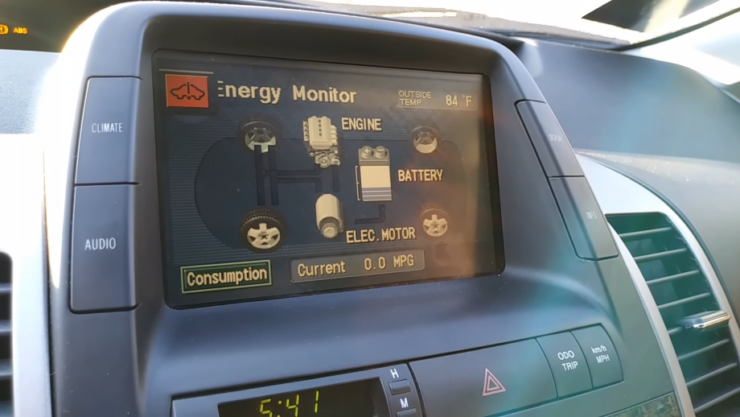
To ensure your Prius 12-volt battery is in top shape, a battery analysis is essential. While there are various battery analyzers available, their core functionality remains consistent.
Note: Before diving into the analysis, always consult the analyzer’s manual for specific instructions:
- Connect the Analyzer: Attach the analyzer’s clips to the battery’s terminals, ensuring positive to positive and negative to negative.
- Powering Up: The analyzer doesn’t have its own power source; it relies on the battery. If it doesn’t activate, your battery might be completely drained.
- Initial Display: Upon connection, the battery’s voltage will be displayed.
- Navigate the Menu: Press the menu button, select your language, and use the arrow keys for navigation.
- Input Battery Details: Choose ‘version information’ followed by ‘battery information’ (details are usually printed on the battery).
- Specify Battery Type: Select the appropriate type.
- Choose the Standard: Typically, this is CCA.
- Proceed: Click ‘next’ and then ‘enter.’
- Location Selection: Specify where you’re analyzing the battery (inside or outside the car).
- Analysis: The device will assess the battery’s state and present the results.
How to charge Toyota Prius hybrid battery
The hybrid battery, nestled in the trunk alongside the 12-volt battery, is the heart of the Prius, powering its engine. Depending on the model, it’s crafted from either Lithium-ion or Nickel-metal, each with its pros and cons.
Now let’s see how the Toyota Prius hybrid battery is charged:
- Preparation: Use the designated Toyota charging cord and connect it to a standard electrical outlet.
- Access the Charge Port: Ensure the vehicle is unlocked, then press the charge port door located on the right corner panel.
- Remove the Cap: Detach the port cap and place it in its holder.
- Charging: Insert the charger into the port until it securely clicks into place. Green lights will signal the start of the charging process.
- Monitor Progress: Three blue lights on the dashboard indicate charging progress. When all three are lit, the battery is fully charged.
- Check the MID: The Multimedia Information Display (MID) showcases the charge status and estimated time for a full charge.
- Charging Duration: Using a standard outlet, a full charge takes roughly 5.5 hours. However, with a 240V charging station, it’s reduced to under 2.5 hours.
- Disconnect: Once charged, unplug the charger, replace the port cap, and store the cord in the trunk.
For added convenience, Prius offers both manual and automatic charging options. With automatic charging, the cord auto-locks in place during charging and releases once done.
Maintenance of a 12-volt battery
Regular maintenance ensures your 12-volt battery operates at peak performance.
- Consult the Manual: Always adhere to the manufacturer’s maintenance guidelines.
- Clean Regularly: Periodically scrub the battery terminals to prevent corrosion.
- Periodic Analysis: Conduct battery tests at regular intervals to monitor its health.
- Timely Replacement: Change the battery after reaching the recommended mileage for optimal performance.
FAQs
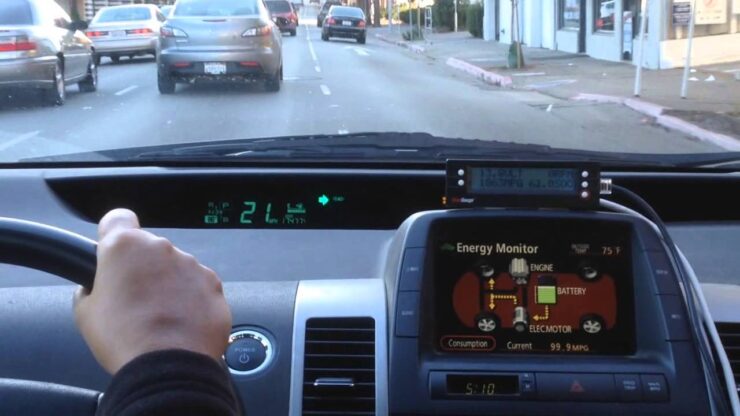
How do I prevent the battery from dying?
Drive regularly and efficiently to keep the battery pack charged and prevent it from dying. Avoid extreme temperatures which can have a negative impact on the performance of your battery pack. And finally use the EV mode sparingly by focusing on using electric power alone for short distances.
How do you know if your Prius battery is dying?
By observing their lights dimming both internally and externally, especially when starting the car or when the radio preset wipes off when starting the engine. You can also tell the battery is dying when you start observing error messages displayed on the Odometer than usual. Another sign to tell your battery is dying out is the car refusing to start up when parked for some time or it suddenly goes off while driving.
Can I change the 12-volt battery even before covering the recommended mileage?
It is very possible to change the battery even before covering the specific mileage, especially when there are obvious signs of the battery dying out. But before replacing check if you have a warranty on the battery.
Is it expensive to replace a dead battery?
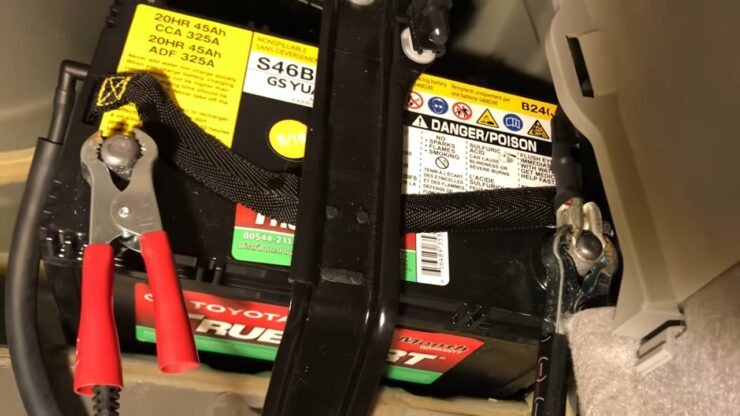
Cost can vary depending on several factors, including the age and condition of the vehicle, the type of battery, and the labor costs at the repair shop. The cost of a replacement battery can range from several hundred to several thousand dollars, depending on the type of battery and where it is purchased. OEM (original equipment manufacturer) batteries are typically more expensive than aftermarket options, but they may also offer better performance and longer lifespan.
Can you give an estimate on what it will cost to replace the 12-volt battery?
It will cost between; $200 and $400 to have a new replacement for your dying battery.
How long does it take before the Prius hybrid battery needs a replacement?
The lifespan can vary depending on several factors, including the age of the vehicle, driving conditions, and maintenance history. However, on average, a Toyota Prius hybrid battery can last anywhere from 8 to 10 years or more.
Verdict
The 12-volt battery may have its shortcomings. However, with a proper maintenance routine and abiding by the instructions in the user manual, we can optimize the battery’s performance.
Running checks and analyses on the battery regularly will keep us abreast of the activity going on in it. Having updated info about our battery will prevent us from being taken unawares and could help us make an adequate replacement plan when necessary.
Also, keeping to the manufacturer’s terms of usage for the hybrid battery will be best for the battery’s health and prolonged use.
Pro Tip: Read our guide on changing the battery in the Prius key, the more you know, the more prepared you are!
Related Posts:
- Toyota 2.4 Engine Problems & Easy Solutions - Keep…
- 7 Clever Car Maintenance Tips to Keep Your Toyota…
- How to Check Prius Hybrid Battery Health - Easy Guidelines
- How to Change Prius Headlight - Keep Your Lights in…
- 13 Best Running Boards for Toyota Tundra 2024 -…
- 10 Best Toyota Tundra Tonneau Cover 2024 - Keep Your…

